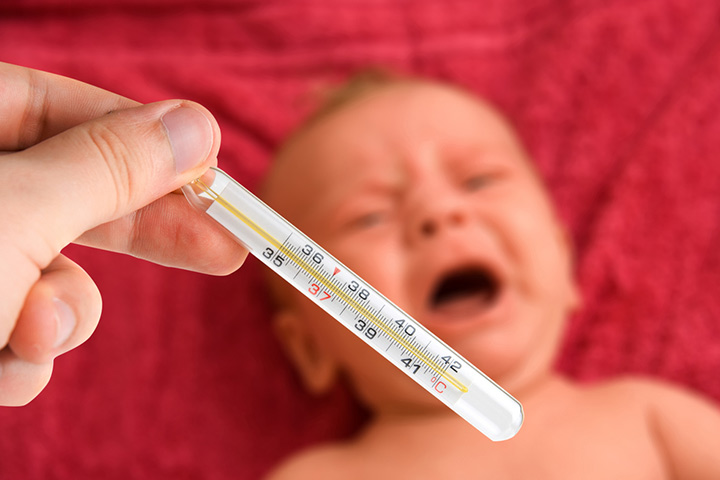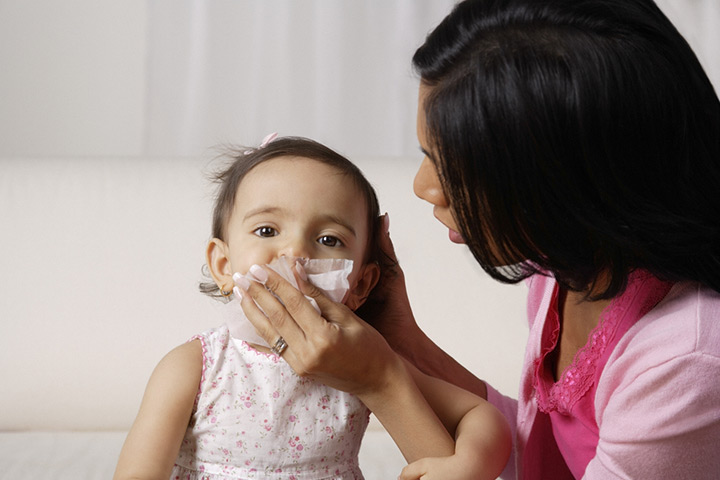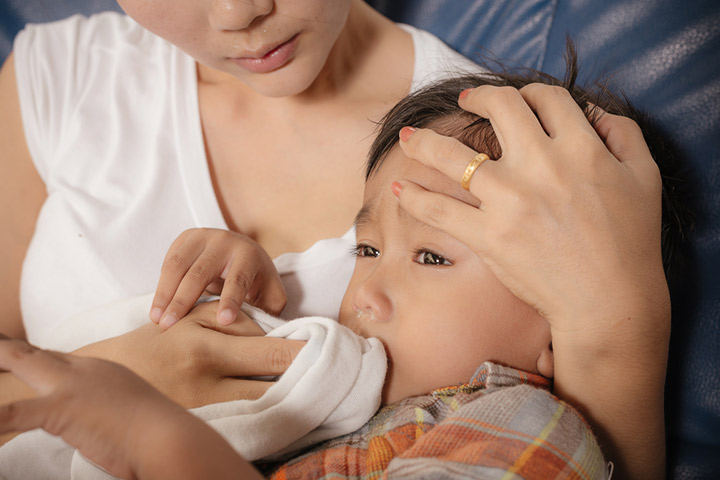
Image: Shutterstock
The happiness of becoming a parent is immense, but with that comes the huge responsibility of taking care of a baby. Parenting is one hell of a ride, where you are constantly on your toes trying to protect your baby from almost everything. The saying “Parenting is a tough job” is an understatement. It’s more than a job; it is a relationship where you have to give your all.
Babies are vulnerable to sickness, but we can’t simply put them in a cocoon forever in order to protect them from infections and allergies. Nevertheless, you cannot just visit the pediatrician for your baby’s every other sneeze as well. So, what should be done?
Knowing when your baby is sick has got a lot to do with knowing how s/he behaves when they are well. So, it is important that you know your baby in and out! Here are a few points to let you understand when your baby is sick and what you should do.
1. Fever
Fever is basically caused because of an underlying disease or infection, which the body tries to fight by raising its temperature. A dose of Tylenol (read: acetaminophen) will usually bring the temperature down to normal level. But if your infant has fever coupled with rashes, irritability, sluggishness, and isn’t feeding properly, then it is recommended to visit the pediatrician.
Also, if your infant is under three months of age and has a rectal temperature of 100.4 degrees Fahrenheit or, alternatively, between 3-6 months and has a rectal temperature of 101.4 degrees Fahrenheit for more than 24 hours, you must call the doctor ASAP (1).
2. Common Cold
A viral infection of the nose and throat (read: upper respiratory tract infection) is caused mostly by rhinoviruses. The main symptoms include nasal congestion and runny nose. Usually a cold with no complications gets resolved within 10- 14 days.
However, newborn babies under 3 months of age are more susceptible to the slightest infection because their immune system is not yet mature. Hence, the cold can easily develop into croup, pneumonia or other serious illness (2). So, you must consult a doctor if your infant has a fever, red eyes or difficulty in breathing.
3. Vomiting
Vomiting is something regular in the infants. They mostly throw up after “feeds” if they do not burp. But frequent vomiting is a cause of concern and you should see the doctor (3). Vomiting can also cause dehydration, so keep a check on whether s/he frequently wets their diapers and whether their lips aren’t dried. If the puke is green in color or you can spot blood, you should seek help immediately.
4. Diarrhea
Like vomiting, diarrhea is also common in infants; however, there is cause for concern if you find blood in their stool (bright red or black) or if they show signs of dehydration (4). In case your baby has breast milk, make sure s/he gets enough of it and watch if their condition is improving or not. If the baby takes formula feed and is frequently having diarrhea, consult your doctor whether you need to change the baby’s formula milk or not.
Unlike adults, babies cannot speak as to what is wrong with them and express their feelings. But noticeable changes in their usual behavior, eating habits, and sleeping pattern can tell a lot about their problem. It might be difficult for first-time parents to decipher these small details, but they get familiar with them once they start spending time with their baby. Ultimately, no one but a mother knows her baby the best. If her gut feeling says something is wrong with her baby, she should definitely consult a doctor.
















